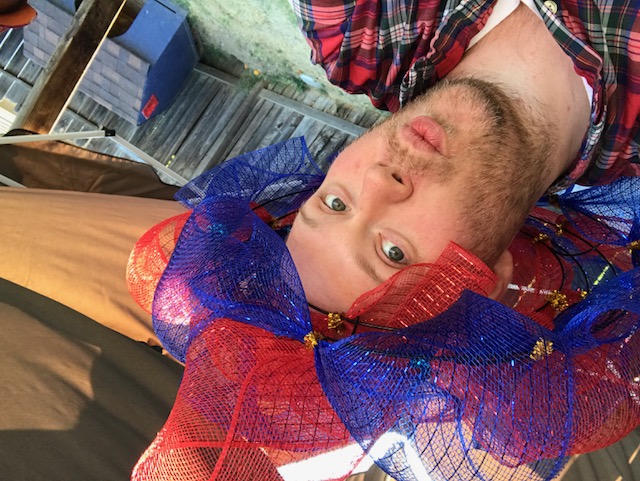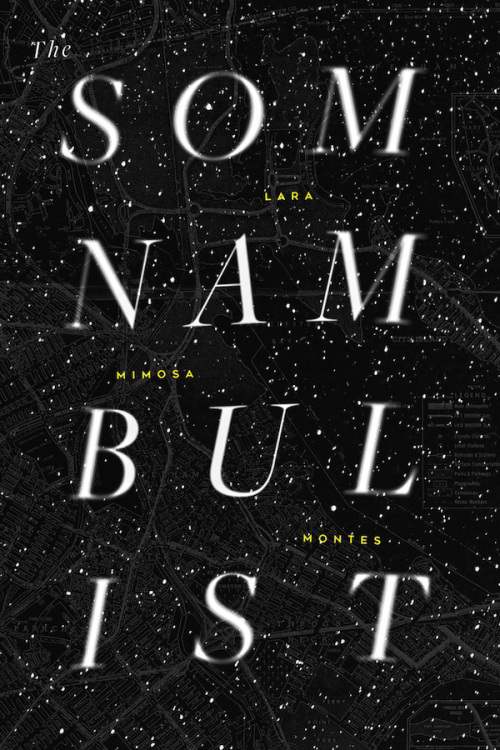ISSN: 1941-4137
POETRY THAT ENACTS THE ARTISTIC AND CREATIVE PURITY OF GLASS
POETRY THAT ENACTS THE ARTISTIC AND CREATIVE PURITY OF GLASS

Christopher McGoff observes and, occasionally, places his observations in writing. Some days he flirts with the idea of sharing it. You can contact him through email at poetic.heretic@gmail.com, or tweet him at @seasurface.
September 12, 2017
Edited by Stephanie Kaylor
Edited by Stephanie Kaylor
Review of The Somnambulist by Lara Mimosa Montes
 The Somnambulist
by Lara Mimosa Montes
Horse Less Press, 2016
Lara Mimosa Montes's writing hunts for a depth and essence obscured by the opacity of melancholy: "An elegy must be empty — / blank with its own blankness / full of what it fails to retrieve / or forget", and so The Somnambulist (Horse Less Press, 2016) attempts "to retrieve" the substance of human relations through the tools of language and discourse. Many literary, cultural, and personal histories populate the terrain of the sleepwalker, whose melancholy is combatted through poiesis and honoring the conditions that have made them who they are. This is a work that seeks to affirm writing as both mode and method for moving beyond the fuzz of our 21st century American context, even under oppressive conditions. "I must learn to write this poem with one hand / tied behind my back while the other holds me," Montes says, while the "other" hand (yours, mine, theirs, a line) bleeds onto the next page, acknowledging the effect of taking up the pen. The "other" hand "responsible / for all these / shiny truths / will they be submissive". No question mark needed. I think it was Gertrude Stein who once said, somewhere, that when a question is being asked, we should be able to perceive such a moment without the assistance of the punctuation mark. This work is a diptych, and the map of the East Bronx partitions each panel connecting poet to text, text to poet. As such, lines can be read twofold. "You are invited here to speculate, ask questions / what kind of person is she? What kind of poet?" Thus, the question becomes why the mark here and not there.
Echoes of connections between the crack-cocaine and pharmaceutical drug epidemics appear in the second panel of this work. Montes appropriates what might be a police report of an unidentified individual arrested for crack-cocaine possession and footnotes it with found textual materials, then a few pages later delivers a barefaced and pointed tercet: "Ambien Oxys Xanax & Gin / a somnambulist can tell you / about these her good friends". There is the confluence of sexual language with the language of memory, the desperate language of dependency, the self-reflexive language of the writing and reading processes, and, although the poet stands "sick," they are brave. Sharpening one's awareness of life through the craft of poetry is a remedy, so the poet gargles "grief's backwash / grit semen salt sediment" while admitting & 9#34;in this way it is very rude to write a poem / to spit it out swish it around gurgle swallow / savor it / Poem, out!" These fragments might shock readers; however, shock creates the condition for an experience that asks of you to think in ways you might not have considered. The aesthetics of shock can be fruitful for growth and contemplation, which can be put to pragmatic use by those willing to attune their ears to the text's shifting pitch.
This sleepwalker marries blunt reflections on family history (the personal) to aesthetic questions raised by Djuna Barnes, Jean Cocteau, Avital Ronell, and Susan Sontag, through such means as blending lyrical meditation with conceptual strategies of appropriation, erasure, and visual poetry. This combination makes for a challenge to received aesthetic assumptions of what poetry is and can be. With the first read, it is difficult to register the change between one note and the next, but this is not a problem, and, in fact, benefits the collection. For a great text is one that makes the reader want to read it again. A brilliant text offers itself up as a map to navigate the shifting current of life, and when the text invokes Djuna Barnes's Dr. Matthew-Mighty-grain-of-salt-Dante-O’Connor's assertion that "death is intimacy walking backward," by the end, Montes's collection make us believe that the inversion must stand. Life is intimacy with the shock and awe, with our poems and a hand tied to the other behind our back.
Visit Lara Mimosa Montes' Website
Visit Horse Less Press' Website
The Somnambulist
by Lara Mimosa Montes
Horse Less Press, 2016
Lara Mimosa Montes's writing hunts for a depth and essence obscured by the opacity of melancholy: "An elegy must be empty — / blank with its own blankness / full of what it fails to retrieve / or forget", and so The Somnambulist (Horse Less Press, 2016) attempts "to retrieve" the substance of human relations through the tools of language and discourse. Many literary, cultural, and personal histories populate the terrain of the sleepwalker, whose melancholy is combatted through poiesis and honoring the conditions that have made them who they are. This is a work that seeks to affirm writing as both mode and method for moving beyond the fuzz of our 21st century American context, even under oppressive conditions. "I must learn to write this poem with one hand / tied behind my back while the other holds me," Montes says, while the "other" hand (yours, mine, theirs, a line) bleeds onto the next page, acknowledging the effect of taking up the pen. The "other" hand "responsible / for all these / shiny truths / will they be submissive". No question mark needed. I think it was Gertrude Stein who once said, somewhere, that when a question is being asked, we should be able to perceive such a moment without the assistance of the punctuation mark. This work is a diptych, and the map of the East Bronx partitions each panel connecting poet to text, text to poet. As such, lines can be read twofold. "You are invited here to speculate, ask questions / what kind of person is she? What kind of poet?" Thus, the question becomes why the mark here and not there.
Echoes of connections between the crack-cocaine and pharmaceutical drug epidemics appear in the second panel of this work. Montes appropriates what might be a police report of an unidentified individual arrested for crack-cocaine possession and footnotes it with found textual materials, then a few pages later delivers a barefaced and pointed tercet: "Ambien Oxys Xanax & Gin / a somnambulist can tell you / about these her good friends". There is the confluence of sexual language with the language of memory, the desperate language of dependency, the self-reflexive language of the writing and reading processes, and, although the poet stands "sick," they are brave. Sharpening one's awareness of life through the craft of poetry is a remedy, so the poet gargles "grief's backwash / grit semen salt sediment" while admitting & 9#34;in this way it is very rude to write a poem / to spit it out swish it around gurgle swallow / savor it / Poem, out!" These fragments might shock readers; however, shock creates the condition for an experience that asks of you to think in ways you might not have considered. The aesthetics of shock can be fruitful for growth and contemplation, which can be put to pragmatic use by those willing to attune their ears to the text's shifting pitch.
This sleepwalker marries blunt reflections on family history (the personal) to aesthetic questions raised by Djuna Barnes, Jean Cocteau, Avital Ronell, and Susan Sontag, through such means as blending lyrical meditation with conceptual strategies of appropriation, erasure, and visual poetry. This combination makes for a challenge to received aesthetic assumptions of what poetry is and can be. With the first read, it is difficult to register the change between one note and the next, but this is not a problem, and, in fact, benefits the collection. For a great text is one that makes the reader want to read it again. A brilliant text offers itself up as a map to navigate the shifting current of life, and when the text invokes Djuna Barnes's Dr. Matthew-Mighty-grain-of-salt-Dante-O’Connor's assertion that "death is intimacy walking backward," by the end, Montes's collection make us believe that the inversion must stand. Life is intimacy with the shock and awe, with our poems and a hand tied to the other behind our back.
Visit Lara Mimosa Montes' Website
Visit Horse Less Press' Website
Glass: A Journal of Poetry is published monthly by Glass Poetry Press.
All contents © the author.
All contents © the author.





